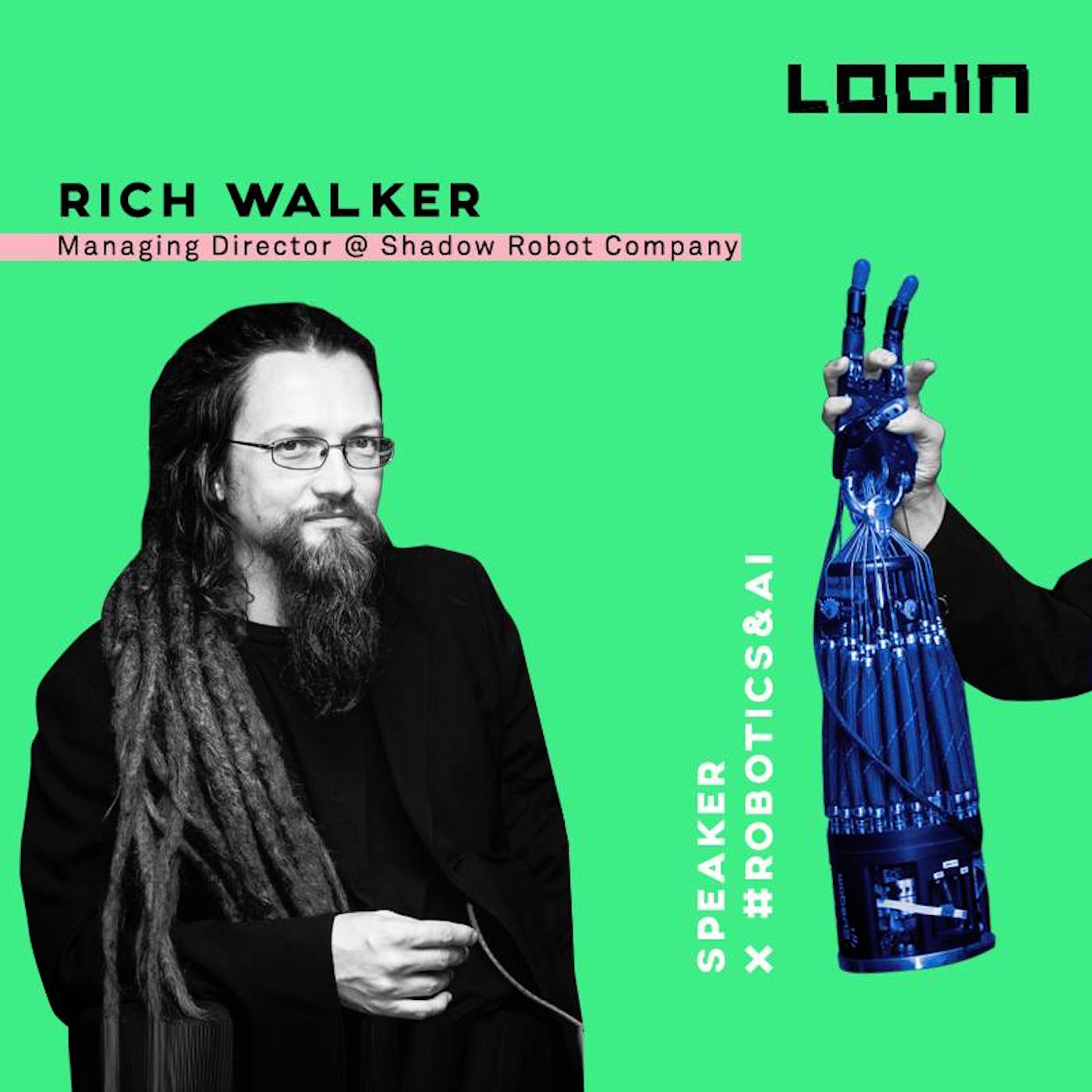
3K
Downloads
27
Episodes
Cultural Producer Jodi Rose invites creative people into the Transit Lounge to talk about life in perpetual motion and visions of the future. A series of internationally nomadic conversations about society, creativity & technology with makers, thinkers and doers. You never know who you'll meet in the Transit Lounge!
Episodes

Tuesday Jun 12, 2018
Rich Walker talks dextrous robot hands & open innovation at Login 2018
Tuesday Jun 12, 2018
Tuesday Jun 12, 2018
Rich Walker believes in tackling real world problems in open innovation partnerships, building dextrous robot hands with Shadow Robot Company.
Robotics + AI + Society + Ethics + Technology + Open Innovation
TRANSIT LOUNGE RADIO @ LOGIN 2018
Managing Director at Shadow Robot Company
RICH WALKER has worked in robotics for over 20 years and leads the team at the Shadow Robot Company which, as a leader in grasping and manipulation, is constantly developing new robots/applications in the field of cutting-edge robotics and AI. He sits on the Innovate UK “Robotics and Autonomous Systems” SIG Advisory Board, which lets him influence the direction the UK takes in robotics in a way that makes sense to SMEs and innovators. In addition, he is the Director of EuRobotics, and various EPSRC and University networks and committees around robotics.
[Edited Transcript]
RW: I'm from Shadow, and we're a robot technology company. We're best known for building hands for robots. When a human interacts with the world, we pick something up, we use our hands. If robots are going to do all sorts of things in the world, they're going to need hands that are quite like human hands.
The high end dextrous robot hand that we built is pretty much the same dexterity as the human hand. As close as we can get it to the human hand. What do I actually need to do real world tasks?
One of the nice things about working with the European research community is that it's very focused on societal challenges. The grand challenges of the sustainable development goals, the missions that the European Commission is looking at for the next generation of research.
Trying to tackle real world problems, and saying broadly, 'let's see what could help for those'. So we've been involved in the past in projects as diverse as: How do you pick strawberries. What's the right sort of robot to put in the home of an elder person who's suffering cognitive impairments, dementia?
And across those lines, there's always the same set of problems turn up. You need to be able to see things, reach out, grasp them and pick them up. The core technologies from our space are always the same across that. So we've been developing a suite of technology that if you want to take a robot and put it in the home to do cooking, our technology can fill one part of that jigsaw. There's a lot of it we don't - because we aren't going to be the experts in everything.
We're big believers in open innovation and partnerships. We talk to our friends over there, they build the robot, our friends over there put the vision on it, our friends over they make it use correct nursing protocols to do the job right.
JR: Is the singularity coming, and if so, when?
RW: I think that what does happen constantly is that improvements in technology change the world, completely – and we don't notice, because it doesn't happen instantaneously. So I think that what we will see is a series of points where, everything has changed – but not in a 'suddenly there was artificial intelligence is ruling the universe'
JR: So it's more like incremental shifts that over time become a larger shift in consciousness, awareness of where we are the in the world?
RW: Yeah, I think that's very much it. If you can imagine taking someone from a thousand years ago and putting them here today in the conference we're in, they'd be like: 'why aren't you singing hymns? And what are these little things you keep rubbing?' But human interaction, the need to eat, the need to drink, the need to talk, the need for sunlight - those things haven't changed, and as long as we're this species, they won't. What will change are the tools and equipment we use to do that. I think that from a technology point of view we're going to see robots becoming more familiar, more common, we're going to see robots allow humans to stop doing repetitive tasks and go do things that are more valuable. As technologists, I think we need to make sure that we actually think about what could be done wrongly and badly with the technologies we develop.
JR: So you're actually building into the research process a considering and concern for the ethical use and the social impact that technology will have in the future?
RW: Yes, I think it's really important to have that kind of ethical perspective on what you're doing.
TRANSIT LOUNGE RADIO @ LOGIN 2018
We are LOGIN 2018 – the first, largest, most uncompromising innovation bash in the Baltics. At LOGIN, the roadmap for INNOVATION is TECHNOLOGY x CREATIVITY x BUSINESS. Whether you’re a blockchain geek, a currencies philosopher or a sophisticated designer, if you believe your desk isn’t the only place where innovation happens – you must LOGIN!
Content isn’t everything. Context is everything.
Transit Lounge Radio brings you conversations from LOGIN 2018!
Thank you for tuning in, we hope you've had as much fun listening as we did making the program. Transit Lounge Radio is independently produced, your support keeps the conversation flowing!
Relax in the VIP Lounge
Hang out in the Transit Lounge on facebook
Reviews and stars on iTunes make us happy
Listen on the TLR YouTube Channel
Subscribe to TLR RSS feed

No comments yet. Be the first to say something!